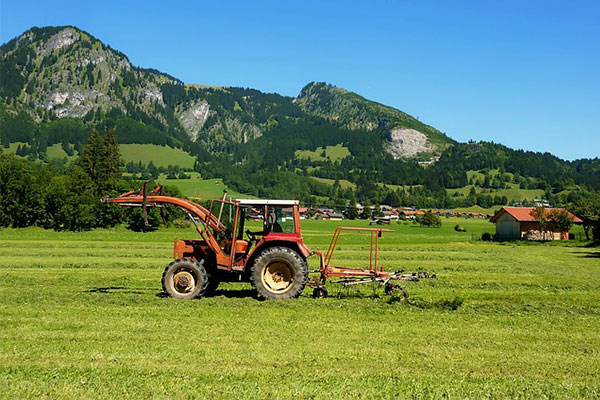With the continuous advancement of agricultural modernization, the domestic demand for agricultural machinery is getting higher and higher. In order to meet market demand, importing agricultural machinery has become an inevitable choice. However, what regulations and procedures need to be followed when importing agricultural machinery? This article aims to introduce the relevant content of agricultural machinery import and help understand the relevant customs declaration procedures and requirements.

1. Customs clearance procedures for agricultural machinery imports
The process of importing agricultural machinery may seem complicated, but understanding the following key steps can help simplify the process:
1. Determine the type of machine:First, you need to determine whether your agricultural machinery is prohibited, restricted or freely importable. This step is crucial because different types of machinery are subject to different regulations and procedures.
2. Prepare import documents:Whether it is restricted import or free import, companies need to prepare a series of documents, including import license (if applicable), contract, invoice, packing list and bill of lading.
3. Inspection and customs declaration:Next, you need to submit all necessary documents to customs for inspection and customs declaration.
4. Tax bill valuation and tax payment:Customs will review your documents and determine the taxes and duties payable based on the value and type of agricultural machinery.
5. Customs inspection and release:Customs may inspect your goods. If everything is in order, customs will release the goods.
II. Documents Required for Application of Imported Agricultural Machinery
Understanding the specific documents and certifications required to import agricultural machinery is essential to ensure smooth customs clearance:
1. Import license:For used agricultural machinery that is subject to import restrictions, an import license is required.
2. Commercial documents:Commercial documents such as contracts, invoices and packing lists are an integral part of the import process.
3. Bill of Lading:A bill of lading issued by the shipping company is required to prove the transportation and delivery of the goods.
4. Inspection certificate:If used electromechanical products are involved, it is necessary to provide a "Pre-shipment Inspection Certificate for Imported Used Electromechanical Products" and a "Pre-shipment Inspection Report for Imported Used Electromechanical Products".
5. 3C certificate:If the product is included in the "Compulsory Product Certification Catalogue", the corresponding 3C certificate is required.
III. Classification and Restrictions on Imported Agricultural Machinery
Understanding the import regulations for agricultural machinery under different classifications is a key step in the customs clearance process:
1. Agricultural machinery prohibited from import:Certain agricultural machinery may be classified as prohibited for import due to safety, environmental or other regulatory reasons. For example, used tractors are generally prohibited from being imported into China.
2. Agricultural machinery with import restrictions:Such agricultural machinery may be restricted for reasons of maintaining national security, protecting the environment or other public interests. Machinery subject to import restrictions usually requires an import license and compliance with specific standards.
3. Freely imported agricultural machinery:Most new agricultural machinery is freely importable but still subject to customs standards and regulations.
Finally, it is important to remember that there are more restrictions and requirements for importing used agricultural machinery than new machinery.
1. For old agricultural machinery with high value and high risk of safety and health, it must undergo "pre-shipment inspection" and obtain inspection certificates and reports before it can be imported;
2.part of the special circumstances of the import of old agricultural machinery, can be properly exempted from pre-shipment inspection, but need to provide “exempt statement of special circumstances of imports”;.
3. If the old agricultural machinery belongs to the 3C certification catalogue, a valid 3C certificate must also be provided.
Ensuring that machinery meets all applicable safety and environmental standards is key to successful customs clearance. Understanding and following these processes and requirements will help ensure your agricultural machinery passes customs smoothly and supports agricultural production needs.


 Follow customer service WeChat
Follow customer service WeChat